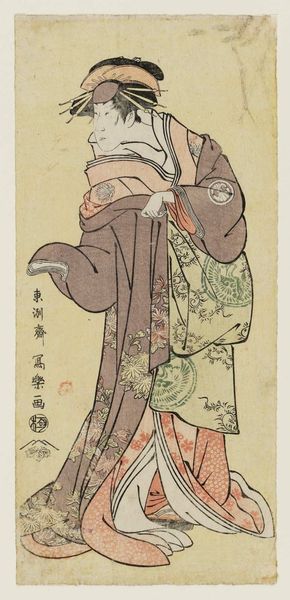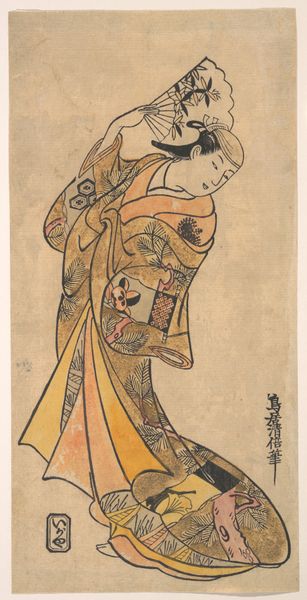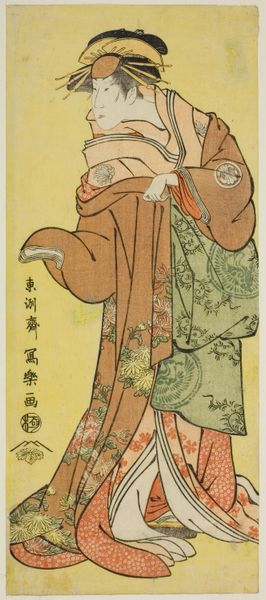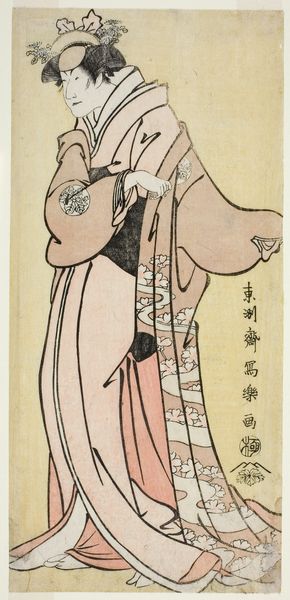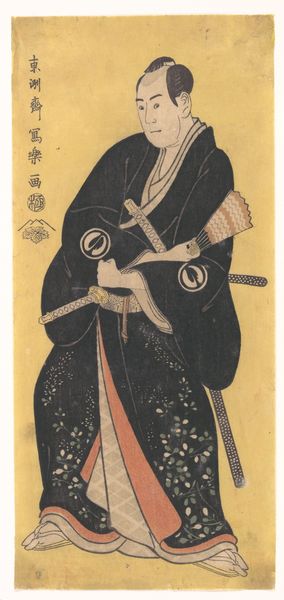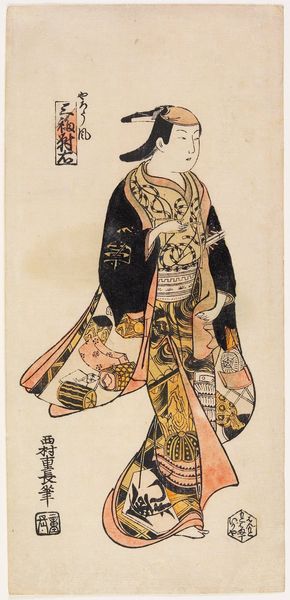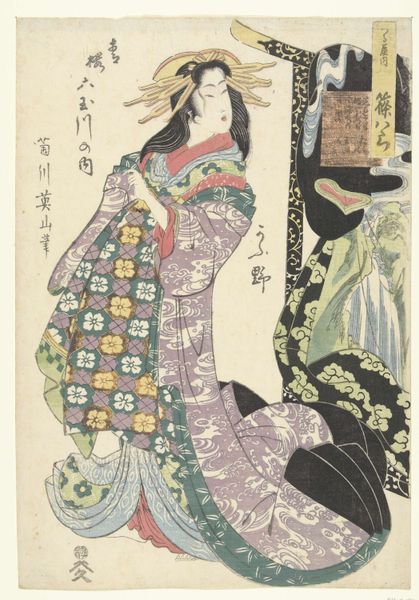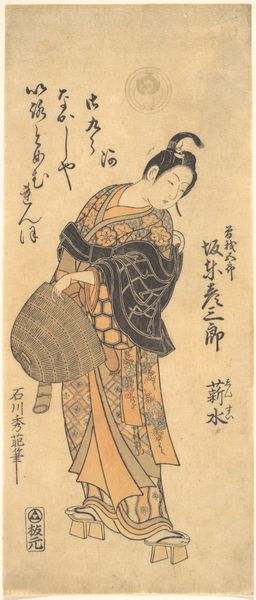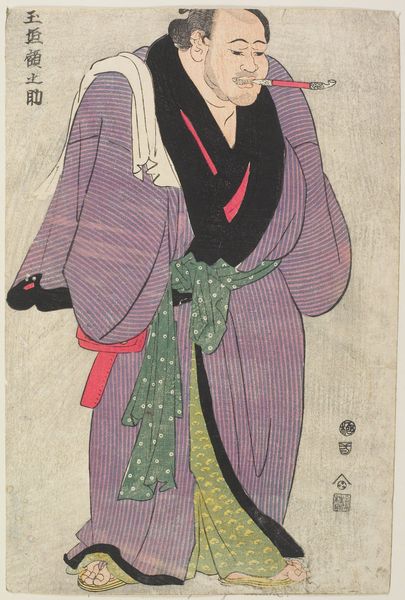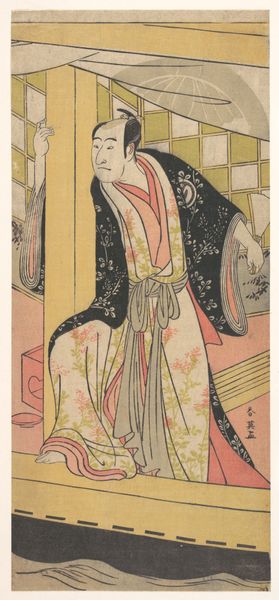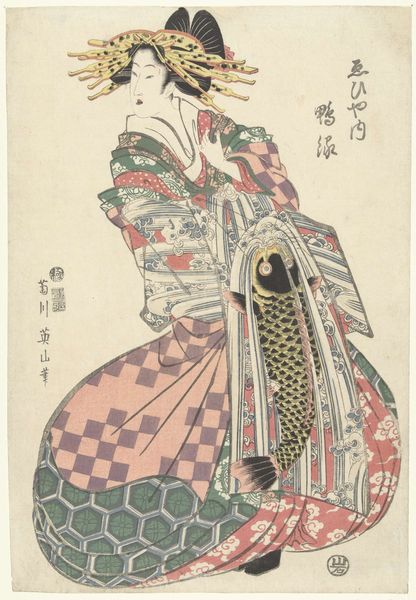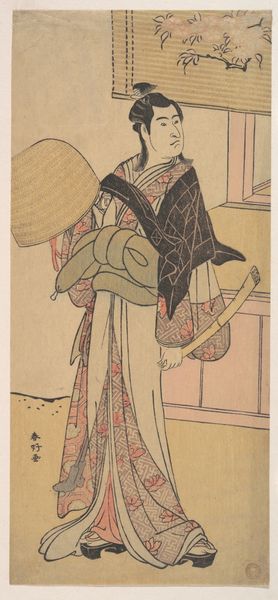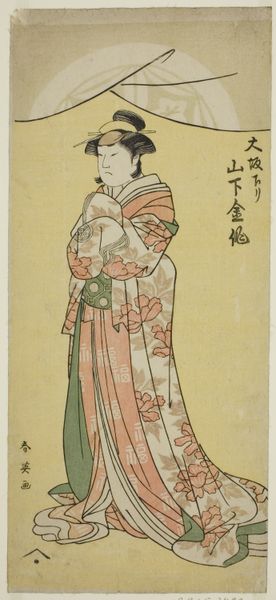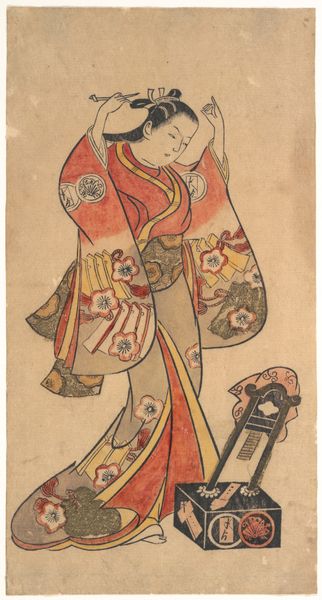
print, woodcut
#
portrait
# print
#
asian-art
#
ukiyo-e
#
woodcut
#
costume
Copyright: Public domain
Tōshūsai Sharaku’s woodblock print depicts the actor Iwai Kiyotarō II as O-Sode, a character from the kabuki theater. Sharaku emerged in Japan's Edo period, a time of relative peace and economic prosperity. Kabuki theater, with its elaborate costumes and dramatic narratives, became a focal point of popular culture, reflecting the aspirations and anxieties of a burgeoning merchant class. Notice how the actor is portrayed: the elongated face and stylized pose are characteristic of Sharaku's style, which often exaggerated features to convey the essence of a character. The print, with its careful attention to detail in the kimono and the actor's accoutrements, speaks to the sophisticated tastes of the urban audience. As historians, we might delve into playbills and theater reviews of the time. By doing so we can understand the social dynamics reflected in this art form and how artists like Sharaku were both products and critics of their cultural moment.
Comments
No comments
Be the first to comment and join the conversation on the ultimate creative platform.
